The Morning Call
Last Friday, Kenya’s president, Uhuru Kenyatta deactivated his Facebook and Twitter accounts, with his chief of staff explaining that there had been unauthorised access to the president’s official social media handles.
Nzioka Waita also added that ‘it seems the president’s stand on corruption has generated all manner of reactions’.
It later turned out that the deactivation could have been caused by a tweet that was deemed to be politically sensitive.
The tweet in question said Kenyatta’s war on graft would not spare anyone, including his family and political allies.
‘‘If you are corrupt, we will fight you. You can be my brother or my sister or my closest political ally but if you are corrupt, we will fight you’‘ read part of the tweet.
Hacking or not?
Kenyans have since speculated that the accounts were deactivated to appease the deputy president, William Ruto, who is technically Uhuru’s closest political ally.
Ruto, who has been Uhuru’s deputy since 2013 has been serially accused of corruption.
ALSO READ: Ruto says poll that ranked him most corrupt Kenyan politician is ‘fake news’Joseph Owino, the founder and CEO of Owino Solutions, a web and media company, told Africanews what he thinks of the ongoing situation in Kenya.
‘‘The talk about the hacking is in my opinion an excuse…what is the point of deactivating the account, rather than kicking out the people who should not have access,’‘ Owino wondered.
‘‘It looks like there is more at play here, and the hacking story is a simpler explanation to be able to pacify everyone that was raising a storm.’‘
Beyond Kenya
Kenya’s government, which previously deactivated official social media handles in 2018, is not the only one to struggle with managing the delicate business of politics on social media.
In the United States, Donald Trump defied the norms of official digital communications, using his personal account to communicate official policy as well as engaging in activity that can be categorised as trolling and cyberbullying.
In Zimbabwe, government officials have openly challenged the authority of statements posted on president Emmerson Mnangagwa’s Twitter account, arguing that the president is not always in charge of the account.
Legitimate voice while the spokesperson says dont rely on that as the position of the President? You are causing confusion. Tell us its just a PR account for the outside world. The president indicates right and turn left. Thank you.
— Tapiwa Chinembiri (@tap_chine) January 25, 2019
Last month, Uganda’s ICT minister, Frank Tumwebaze advised the country’s spokesperson and a Rwandan minister to desist from discussing the ongoing diplomatic standoff on Twitter, advising that ‘there are better channels to use’.
Twitter Ping-pong will not solve any issues, real or perceived btn our countries.There r better channels to use.Our Principals H.E
KagutaMuseveni&H.E PaulKagame at their last bilateral mtg, advised us to TALK to each other on issues affecting our peoples. Let's heed to that https://t.co/hlk3IZdDdO— Frank K Tumwebaze,MP (@FrankTumwebazek) March 1, 2019
To help us make sense of how governments can optimally communicate on social media, we asked Owino to share his thoughts on the subject.
How can governments secure their accounts from potential hackers and criminal elements?
‘‘So, I think that is the first thing, to keep that number of people with access as a very small group. But that number also needs to be trained, they need to be consistently updated on the latest trends, on world standards on what needs to happen. They need to have an open line of communication with the platforms. These platforms always have politics and governance teams that carry out training and help teams communicate better with the citizens.’‘
How can handlers of sensitive accounts like the president’s insulate themselves from the politics of the office-bearers?
‘‘They need to be taught and trained so that they can be able to remove their personal biases when posting in the name of the president. If they are professionals, people who know that I am communicating in the name of the president, and put away their personal biases, they will be able to publish authentic statements attributed to the president.’‘
Could you cite some of the best managed social media accounts by governments across the African continent?
‘‘At the very top, I will definitely put Ethiopia. They have streamlined their communications and their digital focus, because they really have some bright women and men in that team, led by the very excellent Bilene Seyoum. So I see that as really a template that should be followed by other nations.’‘
Joseph also added that Kenya, Rwanda, Nigeria and South Africa’s governments are doing well in terms of using social media platforms to engage the citizenry.


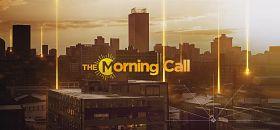

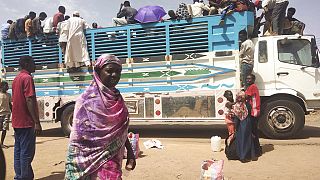
![Africanews celebrates fifth anniversary [Night Shift]](https://static.euronews.com/articles/stories/05/57/72/74/320x180_cmsv2_6b1e7837-a917-526b-b3b4-4582a3f8bcac-5577274.jpg)
![Africanews celebrates fifth anniversary [Morning Call]](https://static.euronews.com/articles/stories/05/57/72/70/320x180_cmsv2_a6c857d4-80a3-510a-88e6-f060ea8d9ee9-5577270.jpg)
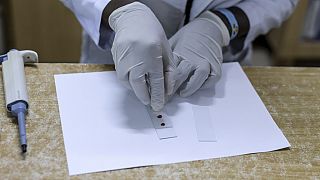
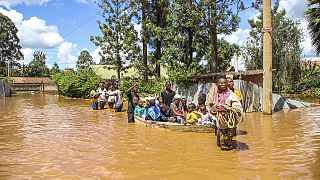
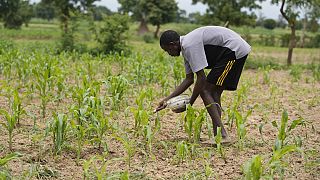
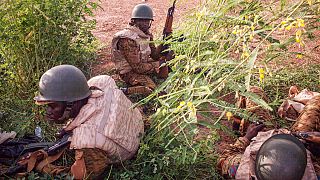
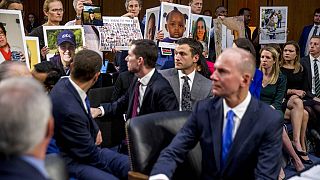
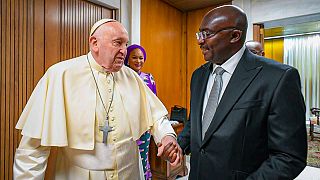
01:02
Pics of the day: April 24, 2024
01:02
Pics of the day: April 23, 2024
01:06
Heavy rains and floods paralyze Nairobi, death toll rises in Kenya
Go to video
Can Kenya's new visa-free policy hurt tourism instead of boosting it?
00:49
London Marathon: Women's-only world record, Kenyan double victory
01:49
Kenya: Climate activists march against fossil fuel industry